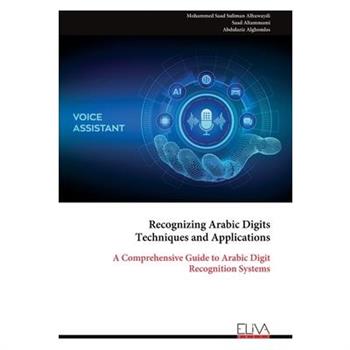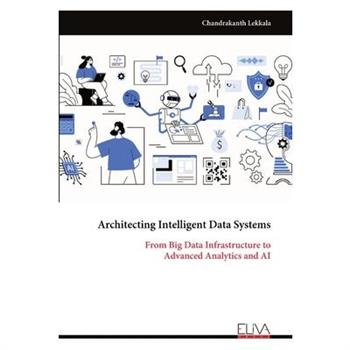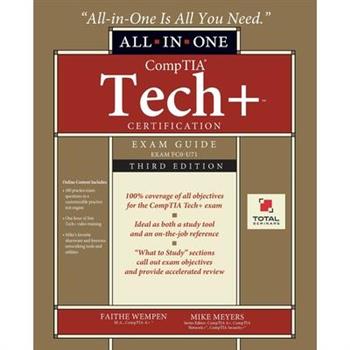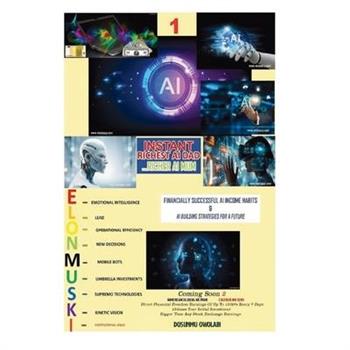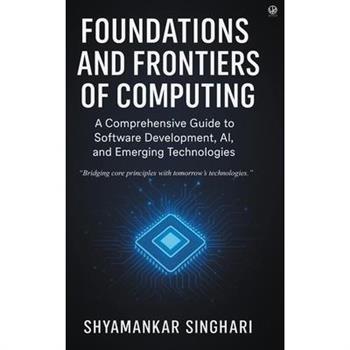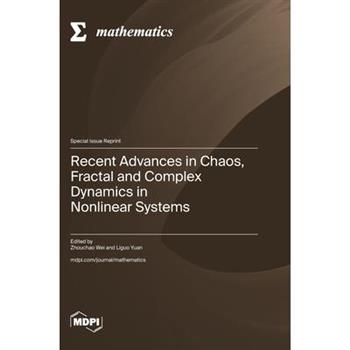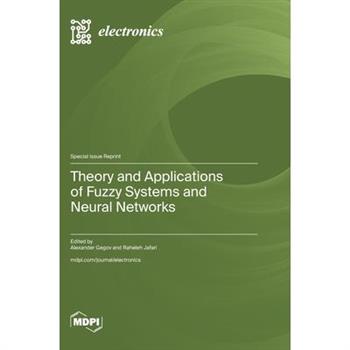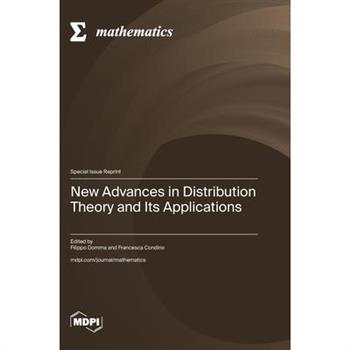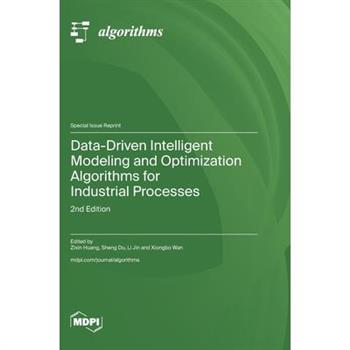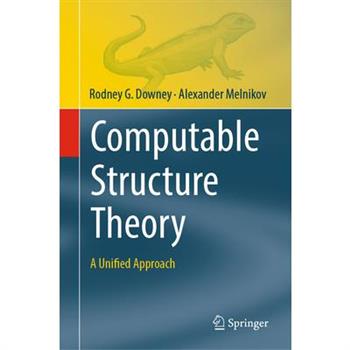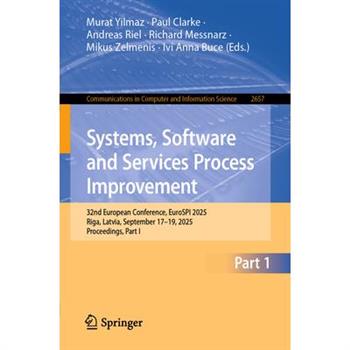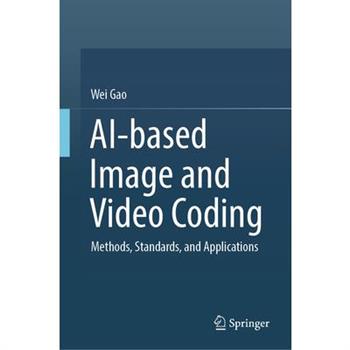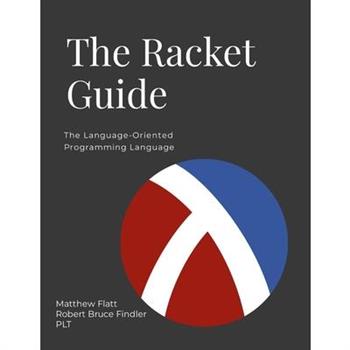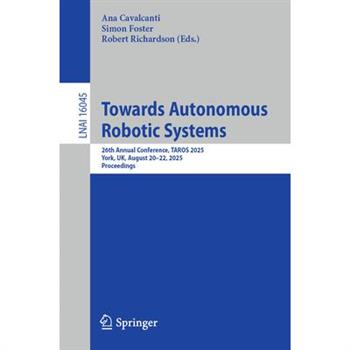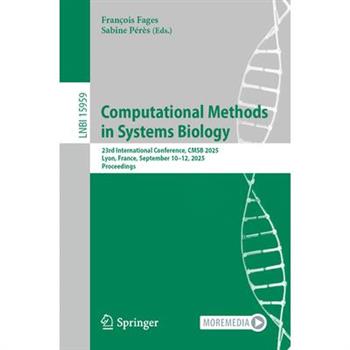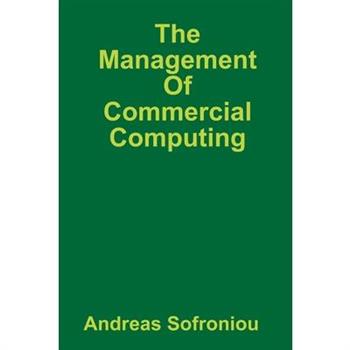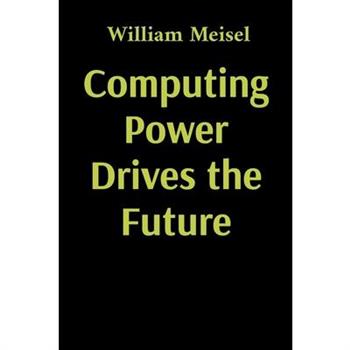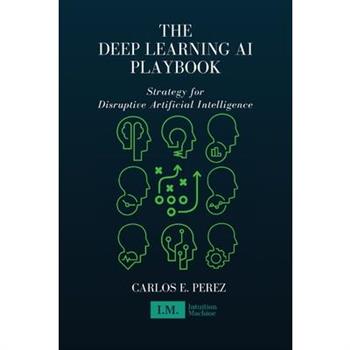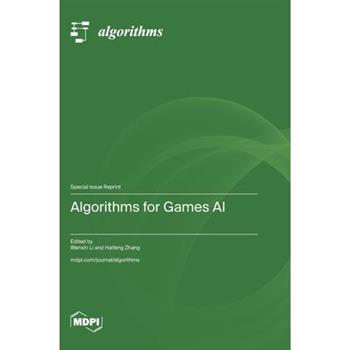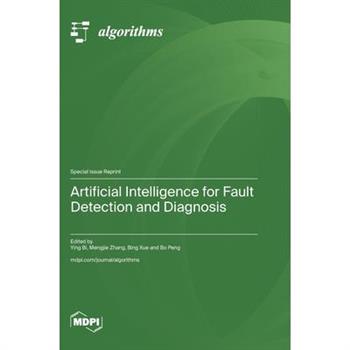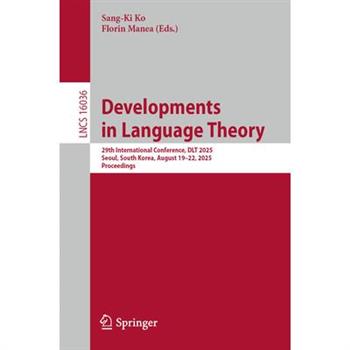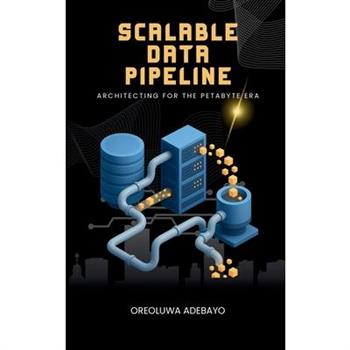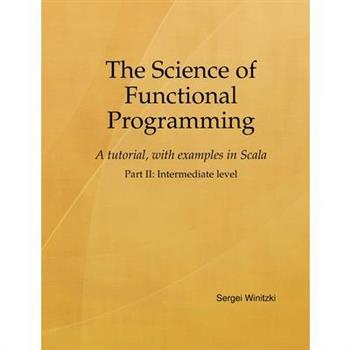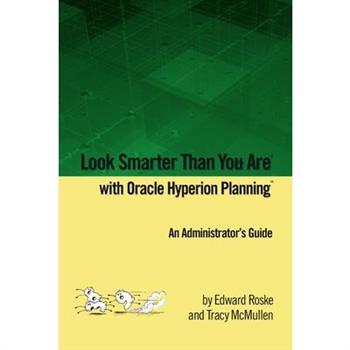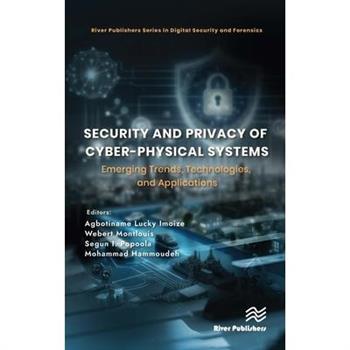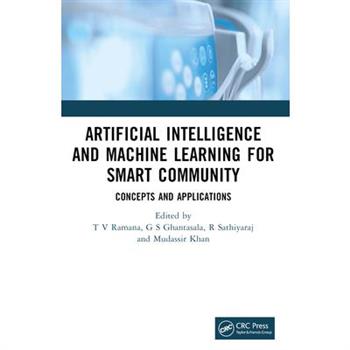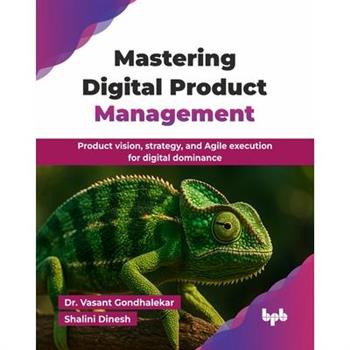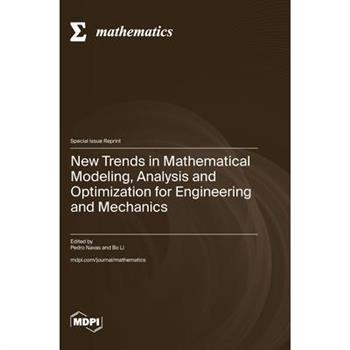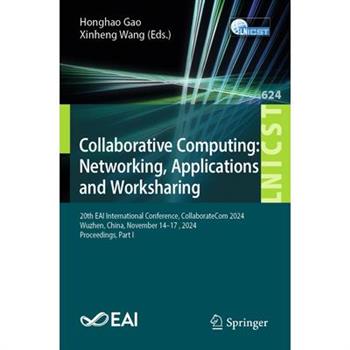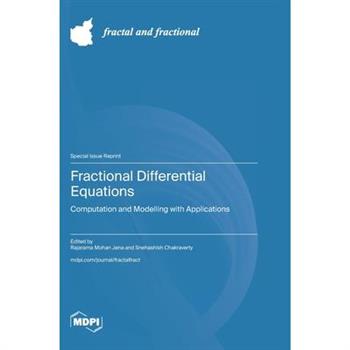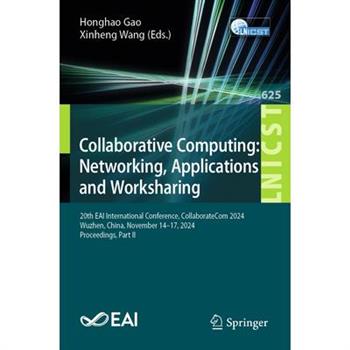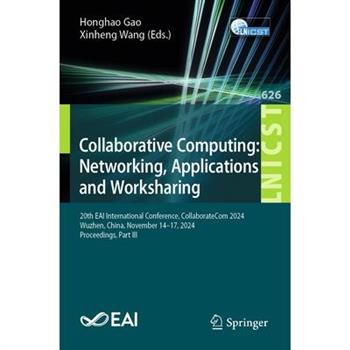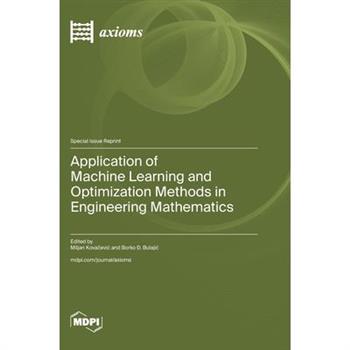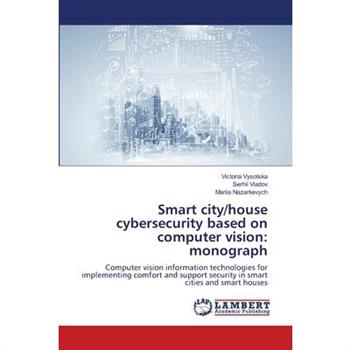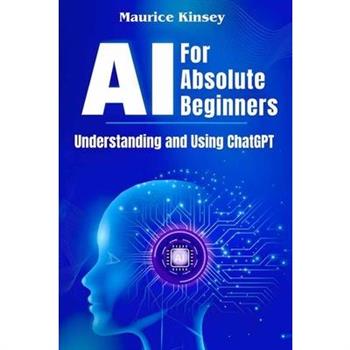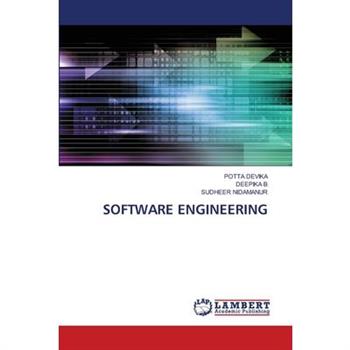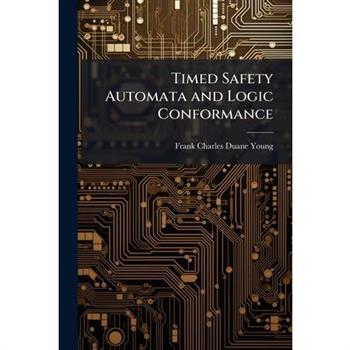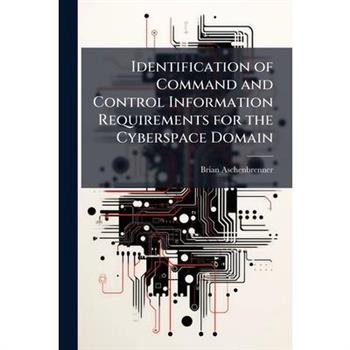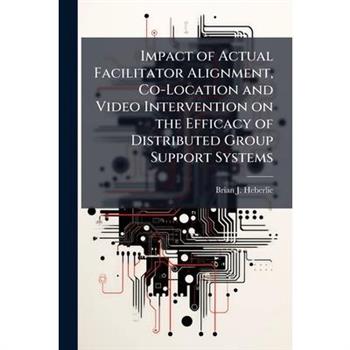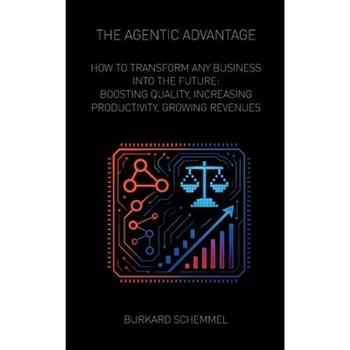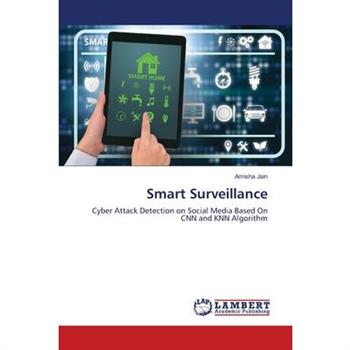Recognizing Arabic Digits Techniques and Applications
In an increasingly digitized world, the ability to accurately recognize Arabic digits is essential across various applications, from banking to education. This book provides a thorough exploration of the methodologies and technologies behind Arabic digit recognition. It covers the fundamental concepts, advanced techniques, and practical implementations, making it an invaluable resource for researchers, developers, and students alike. Inside, you will discover: A detailed overview of digit recognition systems Insights into machine learning and deep learning approaches Case studies showcasing real-world applications Best practices for developing robust recognition algorithms Challenges and future directions in the field Whether you are an experienced engineer or a novice eager to learn, this book will equip you with the knowledge and tools to excel in Arabic digit recognition.
Architecting Intelligent Data Systems
""Architecting Intelligent Data Systems: From Big Data Infrastructure to Advanced Analytics and AI"" by Chandrakanth Lekkala is a definitive guide to modern data system architecture. With 28 meticulously crafted chapters organized into six major parts, this groundbreaking work bridges foundational concepts and cutting-edge advancements in data technologies, from distributed infrastructures to sophisticated AI implementations. Lekkala explores the evolution of data systems, offering deep insights into scalable data pipelines, machine learning, advanced analytics, and emerging trends like quantum computing and privacy-preserving AI. Practical examples, architectural patterns, and real-world use cases span industries such as finance, healthcare, and smart cities, making this book an indispensable resource for data professionals. A hallmark of this text is its focus on ethical AI, data governance, and responsible innovation, ensuring that readers are equipped to navigate the complex challenges of modern data systems with integrity and foresight. Whether you're a data architect, engineer, or researcher, ""Architecting Intelligent Data Systems"" provides the tools and insights needed to design scalable, secure, and ethical data solutions. Chandrakanth Lekkala's expertise and vision make this a must-read for anyone shaping the future of data-driven technology.
CompTIA Tech+(TM) Certification All-in-One Exam Guide, Third Edition (Exam FC0-U71)
This up-to-date exam guide delivers complete coverage of every topic on the FC0-U71 version of the CompTIA Tech+ Certification examTake the CompTIA Tech+ exam with complete confidence using this effective self-study system. Part of the bestselling series created and edited by Mike Meyers, the leading expert on CompTIA certification and training, and written by a CompTIA certification and training expert, this authoritative guide explains foundational computer technologies in full detail. You'll find learning objectives at the beginning of each chapter, exam tips, exam objective review sections, practice exam questions, and in-depth explanations throughout. Designed to help you pass the CompTIA Tech+ exam with ease, this definitive guide also serves as an essential on-the-job reference. Covers all exam topics, including: IT concepts and terminologySystem hardware and peripheralsData storage and sharingOperating system types and purposesSelecting, installing, and using applicationsMobile device connectivity, security, and configurationNetwork concepts and internet connectivitySecuring hardware, software, data, and networksBest practices for preventing security breachesCustomizing and configuring web browsersTroubleshooting common computer problemsRelational and non-relational databasesSoftware development concepts and structuresOnline content includes: 180+ practice exam questions in a customizable test engineOne hour of video training from Mike MeyersMike Meyers' favorite shareware and freeware networking tools and utilities
Recent Advances in Chaos, Fractal and Complex Dynamics in Nonlinear Systems
This reprint collates all of the articles published in the Special Issue of Mathematics titled "Recent Advances in Chaos, Fractal and Complex Dynamics in Nonlinear Systems". This Special Issue was devoted to showcasing the latest theoretical advances and practical developments in the field of nonlinear dynamics, with a particular focus on chaotic behavior, bifurcation phenomena, fractal structures, and the emerging dynamics in fractional-order, discrete, and discontinuous systems.The collected works reflect the rapid progress that has been achieved in understanding the interplay among nonlinear systems, chaos, bifurcation, and fractals. The topics include new methods for detecting chaos, novel types of attractors (including hidden attractors), fractal features in fractional-order systems, and the applications of chaotic and fractal dynamics in areas such as secure communication and optimization algorithms.We hope that this reprint will serve as a valuable reference for researchers and practitioners engaged in the study of nonlinear systems, and in particular, those exploring chaos theory, bifurcation analysis, fractal geometry, and the complex behavior of emerging dynamical models.
Theory and Applications of Fuzzy Systems and Neural Networks
Fuzzy systems and neural networks are the main theoretical approaches in computational intelligence. These approaches have been successfully applied in a wide range of fields, such as information science, mathematics, control engineering, image processing, pattern recognition, robotics, mechatronics, consumer electronics, and system optimisation. They provide an effective tool for data and knowledge-based modelling that deals with many real-world problems with quantitative and qualitative complexity in terms of dimensionality and uncertainty.Fuzzy systems and neural networks complement each other and can be combined with other computational and artificial intelligence-based techniques, such as evolutionary algorithms and machine learning, to solve complex real-world problems. The integration of fuzzy systems and neural networks, in particular, can bring out the best of both approaches and usually provides better system performances in terms of modelling efficiency and accuracy.This reprint features original research of the highest scientific quality related to the theory and applications of fuzzy systems and neural networks. It includes original and unpublished works that present innovative methods for enhancing fuzzy systems and neural networks. Its scope includes systematic and empirical studies that contribute to significant novel developments in the theoretical and applied aspects of research in the field.
New Advances in Distribution Theory and Its Applications
This Special Issue covers recent developments in distribution theory where the proliferation of 'new' distributions-often derived through standardized techniques-has led to the development of models that prioritize mathematical elegance and rigor over interpretability. While these models may exhibit increased complexity, they often fail to provide meaningful insights or flexibility beyond existing distributions in the literature.The Special Issue aims to reinvigorate the field by highlighting contributions that emphasize both the flexibility of statistical models and the clarity of their parameter interpretations. It focuses on developing distribution models grounded in specific mechanisms or characteristics related to real-world contexts, as well as frameworks that advance families of distribution functions. The contributions herein introduce reparameterizations to enhance model interpretability, explore regression models using key characteristics or indicators, and offer original applications with real data.Through this collection, the Special Issue seeks to foster deeper insights into statistical distribution theory, ensuring that new models remain practical and interpretable while advancing the flexibility and utility of existing frameworks.
Data-Driven Intelligent Modeling and Optimization Algorithms for Industrial Processes
The aim of this Special Issue is to explore the multifaceted aspects of data-driven intelligent modeling and optimization algorithms for industrial processes. The main goals are to harness the power of data to improve control, decision making, and parameter optimization, and to drive industrial systems to unprecedented levels of efficiency, reliability, and adaptability. Research areas in this Special Issue include digital twin technology, multimodal data recognition, sensor data ingestion and real-time processing, multi-objective path-planning, conditional generative adversarial network, generating job recommendations, comprehensive risk assessment, large language models, self-supervised key-point learning, trustworthy article ranking, engine optimization model, and bioinspired generative design. These powerful and intelligent algorithms use data for control, decision making, and parameter optimization, driving industrial systems to unprecedented levels of efficiency, reliability, and adaptability. By sharing their practice and insights in the development and application of these new technologies, the authors of the articles in this reprint have demonstrated the value of data-driven intelligent modeling and optimization algorithms for industrial processes, providing readers with valuable ideological inspiration in the field.
Computable Structure Theory
This is the first book which gives a unified theory for countable and uncountable computable structures. The work treats computable linear orderings, graphs, groups and Boolean algebras unified with computable metric and Banach spaces, profinite groups, and the like. Further, it provides the first account of these that exploits effective versions of dualities, such as Stone and Pontryagin dualities. The themes are effective classification and enumeration. Topics and features: - - - - - This unique volume is aimed at graduate students and researchers in computability theory, as well as mathematicians seeking to understand the algorithmic content of structure theory. Being self-contained, it provides ample opportunity for self-study.
Systems, Software and Services Process Improvement
The two-volume set CCIS 2657 + 2658 constitutes the refereed proceedings of the 32nd European Conference on Systems, Software and Services Process Improvement, EuroSPI 2025, held in Riga, Latvia, during September 17-19, 2025. The 42 papers included in these proceedings were carefully reviewed and selected from 72 submissions. They were organized in topical sections as follows: Part I: SPI and Emerging and Multidisciplinary Approaches to Software Engineering; SPI and Standards and Safety and Security Norms; SPI and Functional Safety and Cybersecurity. Part II: Sustainability and Life Cycle Challenges; SPI and Recent Innovations; Digitalisation of Industry, Infrastructure and E-Mobility; SPI and Agile.
IMU, ICM, Medals, Prizes, and Laureates
The book begins with the formal establishment of the International Mathematical Union (IMU) and its purpose of promoting international cooperation in mathematics by supporting and assisting the international Congress of Mathematicians (ICM) every four years. The book presents the most important features of each ICM (from 1897 to 2022) including the history of various medals and awards, particularly the Fields Medal, which is regarded as one of the highest honors a mathematician can receive and has been described as the Nobel Prize of mathematics. For each Laureate, the book provides their family background, a short description of the work that led to the award, a history of academic jobs, research conducted after receiving the award, and a list of further honors and awards. This book will stimulate all mathematicians, especially students who think that mathematics is less rewarding compared to other disciplines.
The Racket Guide
This guide is intended for programmers who are new to Racket or new to some part of Racket. It assumes programming experience, so if you are new to programming, consider instead reading How to Design Programs.
Towards Autonomous Robotic Systems
This LNAI 16045 volume constitutes the proceedings of the 26th Annual Conference on Towards Autonomous Robotic Systems, TAROS 2025, held in York, UK, duing August 20-22, 2025. The 32 full papers and 4 short papers, together with 4 invited papers presented in these volumes were carefully reviewed and selected from 74 submissions. The papers were categorised into seven groups: Human-Robot Interaction and Teleoperation, Sensing and Perception, Locomotion and Control, Manipulation and Dexterous Interaction, Software Engineering for Robotics, Underwater Robotics and Autonomy, Aerial Robotics and Path Planning, and Challenging Environments.
Computational Methods in Systems Biology
This book constitutes the refereed proceedings of the 23rd International Conference on Computational Methods in Systems Biology, CMSB 2025, which took place in Lyon, France, during September 10-12, 2025. The 21 full papers presented in this volume were carefully reviewed and selected from 34 submissions sent to reviews. They are grouped into the following topics: Boolean Networks; Continuous and Hybrid models; Rule-based models; Model inference and machine learning; Population models and control.
The Management Of Commercial Computing
The Management Of Commercial Computing. ISBN: 0952795604 Year: 1996 The development and management of systems and people in multi-national corporations, systems and software houses, government departments, European Union Commissions and academia.
Computing Power Drives the Future
Computing power has long grown at an exponential rate. That rapid advance has allowed digital systems to do more each year. Computer power crossed a major threshold when it made "Artificial Intelligence" driven by deep neural networks economically feasible. And huge investments are being made in ever-larger computer centers to support AI. This book challenges the assumptions behind those huge investments and explains why the generative AI that is making all the news is over-rated.Computer power crossing a threshold allowed deep neural nets to be practical, and they have indeed been used effectively for many limited applications. Meisel discusses the "next big thing" that exponential growth in computer processing speed will allow. The book provides a realistic description of what we can expect as computer power grows ever more quickly than most past innovations, with major impacts on society, the economy, and competition between countries.
The Deep Learning AI Playbook
Just like any new technology, what perplexes many is the question of how to apply Deep Learning in a business context. Technology that is disruptive does not automatically imply that the development of valuable use cases are apparent. For years, many people could not figure out how to monetize the World Wide Web. We are in that same situation with Deep Learning AI. The developments are mind-boggling but the monetization is far from being obvious. Deep Learning Artificial Intelligence involves the interplay of Computer Science, Physics, Biology, Linguistics and Psychology. In addition to that, it is technology that can be extremely disruptive. Furthermore, the ramifications to society and even our own humanity can be immense. There are few subjects that are as captivating and as consequential as this. Surprisingly, there is very little that is written about this new technology in a more comprehensive and cohesive way. This book is an opinionated take on the developments of Deep Learning AI.
Fuzzy Sets and Fuzzy Systems
Over time, the concepts of cost, time, delivery, space, quality, durability, and price began to gain more significance in the emerging trends of information technology when it comes to solving managerial decision-making problems in supply chain models, transportation issues, inventory control issues, and related areas. In uncertain situations, competition is becoming more difficult by the day. For instance, a number of diverse aspects, such as the cost of manufacturing and one's degree of income, frequently influence consumer demand. In these situations, the demand is either still unmet or remarkably difficult to meet in the real-world market. Due to their numeric membership functions, fuzzy sets cannot always represent this uncertainty explicitly. However, it has been discovered that type two, random fuzzy, bifuzzy, and fuzzy random sets are more suited to account for intrinsic uncertainty. These various fuzzy systems are able to manage greater degrees of ambiguity in increasingly difficult real-world issues. However, it is crucial to employ optimization techniques in order to obtain the ideal design as diverse fuzzy systems grow more complicated to conceive. This Reprint highlights novel modeling techniques and fuzzy optimization strategies applied to real-world problems, including sustainable green supply chain systems, relief logistics under uncertainty, and cloud-based software prediction, alongside theoretical developments in fuzzy systems.
Algorithms for Games AI
Games have long been excellent benchmarks for AI algorithms for two reasons. Initially, games are developed to assess and challenge human intelligence, and the variety of games can provide a rich context for evaluating different cognitive and decision-making abilities. Secondly, addressing complex real-world challenges often requires repeated trial and error, which can be very costly. Games offer a low-cost or even zero-cost platform for validating various algorithms and solutions by simulating or emulating real-world scenarios. Algorithms initially developed for gaming are subsequently applied to various real-world problems, generating social benefits across all aspects of life. This Special Issue, entitled "Algorithms for Game AI", explores new and innovative approaches for addressing challenges in game AI. These approaches range from traditional algorithms like planning and searching to modern algorithms such as deep reinforcement learning. The papers in this Special Issue address both the theoretical and practical challenges of the application of these algorithms. This reprint presents eleven papers covering a wide range of game AI topics, including the quantification of non-transitivity in chess, the expressiveness of level generators in Super Mario Bros, Mahjong as a new game AI benchmark, new MARL algorithms to reduce Q-value bias, surveys of various AI algorithms in cyber defense, energy areas and games, the application of MCTS in Amazons, the application of deep reinforcement learning in autonomous vehicle driving, and the application of transformers in both offline RL and imitation learning.
Artificial Intelligence for Fault Detection and Diagnosis
Fault detection and diagnosis (FDD) is an important task in manufacturing and mechatronic systems for reducing costs and improving productivity. Traditionally, the states of machines and their faults are manually checked, a process which is time-consuming and expensive. Therefore, it is desirable to develop intelligent systems to achieve automatic FDD. Artificial intelligence as a concept covers a wide range of algorithms that mimic the human mind, thinking and acting like humans to solve important tasks in different fields. In recent years, many AI algorithms have been applied to FDD, including data processing, feature analysis, and classification. Typical methods include deep neural networks, long short-term memory, convolutional neural networks, random forest, and evolutionary computation. However, the potential of AI has not been comprehensively investigated in FDD. This remains a challenging task due to many factors, such as changeable equipment working states, incomplete information, a lack of sufficient training data, complex relationships between faults and symptoms, imbalanced data, and the requirement of having domain knowledge. This reprint is a collection of research regarding AI techniques applied to various FDD tasks.
Developments in Language Theory
This LNCS conference volume constitutes the proceedings of the29th International Conference on Developments in Language Theory, DLT 2025, in Seoul, South Korea, in August 2025. The 18 full papers and 2 invited papers included in this book were carefully reviewed and selected from 38 submissions. They presented current developments in formal languages and automata. Its scope is very general and includes, among others, the following topics and areas: grammars, acceptors and trans-ducers for words, trees and graphs; algebraic theories of automata; algorithmic and many more.
Fractional Random Vibrations I
This two-volume set provides a comprehensive study of fractional random vibration from the perspective of theory and practice. Volume I deals succinctly with the theories of fractional processes and fractional vibration systems.A major focus of fractional vibrations is the derivation of analytical expressions for the frequency transfer functions of seven classes of fractional vibrations using elementary functions. This is considered from the perspective of the functional form of linear vibrations with frequency-dependent mass, damping, or stiffness. The present results serve as a basis for the study of the novel and frontier topic of fractional processes passing through fractional vibration systems, which is discussed in Volume II.The title will be essential reading for students, mathematicians, physicists, and engineers interested in fractional random vibration phenomena.
8-Bit Stories
Join me on a trip down memory lane as we look at the highs and lows of the UK computer scene. With giants like Atari, Commodore, and Texas Instruments taking on our tiny British companies. Could Sinclair and Acorn take on the American muscle of Commodore? Well, for a considerable amount of time, they did, but why did the multi-million-selling Spectrum disappear? Why did the government-endorsed BBC Microcomputer fail to sell into most UK homes?Why did the Acorn Electron fail? Given the might of Commodore and Atari, did the Dragon 32 or Oric Atmos ever stand a chance? With millions of pounds on the line, can they even survive the year? Late releases, missed deadlines, and financial disasters all await our fledgling companies. Can the strange 8/16-bit hybrid Ti99/4 beat the Commodore VIC-20? Is the Oric 1 better than a Spectrum 48k? We look at a year-by-year history of the 1980s and the computers and companies selling here in the UK.What happened to the global dominance of UK computers... Amstrad managed to capture some of the European markets, along with Sinclair and Acorn. Ultimately, Commodore International would dominate the home computer scene, while Atari would briefly control the console market until the Japanese arrived, but what happened to MGT, Tangerine, Lynx, and Dragon Data? What became of Amstrad or the Enterprise64? The UK home computer (8-bit) scene is covered from 1980 until 1988.
Scalable Data Pipelines
Scalable Data Pipelines Architecting for the Petabyte Era is a timely and essential guide for professionals navigating the explosive growth of data in today's digital world. As organizations generate data at unprecedented rates from everyday user interactions to complex industrial IoT readings the need for robust scalable data infrastructure has never been more critical. This book presents a practical and insightful roadmap for building high-performance data pipelines that can handle massive datasets with efficiency reliability and foresight.Designed for data engineers architects scientists and tech leaders this book goes beyond theoretical concepts to deliver real-world strategies for designing data pipelines that are ready for the demands of the petabyte era. It offers in-depth coverage of everything from data ingestion and storage to transformation processing and delivery while incorporating modern architectural approaches such as distributed systems microservices and cloud-native frameworks. Readers will gain valuable knowledge on how to leverage tools like Apache Spark Kafka and cloud data platforms to build pipelines that are both resilient and future ready.With a focus on performance optimization fault tolerance and operational excellence Scalable Data Pipelines is a must have resource for anyone involved in the data lifecycle. Whether you are optimizing current systems or designing new ones from the ground up this book equips you with the tools insights and confidence to turn data overload into competitive advantage.
The Science of Functional Programming, Part II
This book is a pedagogical in-depth tutorial and reference on the functional programming paradigm. Starting from issues found in practical coding, the book builds up the theoretical intuition, knowledge, and techniques that functional programmers use for for rigorous reasoning about types and code. The second part of the book focuses on working with laws, structural analysis, and code for functors, monads, and other typeclasses, as well as the required techniques of symbolic derivation and proof. Detailed explanations and derivations are accompanied by solved examples tested in the Scala interpreter, as well as exercises and discussions that further build upon each chapter's material. The difficulty of this book's mathematical material is at the level of undergraduate multivariate calculus.
Look Smarter Than You Are with Hyperion Planning
Oracle Hyperion Planning is the market leading budgeting and forecasting solution that provides powerful planning capabilities over the web and in Microsoft Excel. You want to plan faster and more accurately and you are sure Oracle Hyperion Planning is the answer. This book is your key to unlocking the world of Planning from an administrator perspective, guiding you through the ins and outs of Planning on your quest for improved budgeting and forecasting. You will learn: -What is Oracle Hyperion Planning and how to connect -How to plan over the web -How to build a Planning application from start to finish -The steps to manage and administer Planning applications -Tips, tricks, and design best practices for Planning and its underlying Essbase databases
Security and Privacy of Cyber-Physical Systems
This book examines vulnerability threats and attack detection and mitigation, including the associated legal requirements, regulatory frameworks, and policies for enabling the security and privacy of cyber-physical systems. It provides researchers, academics, and practitioners with new insights into the real-world scenarios of deploying, applying, and managing security and privacy frameworks in modern cyber-physical systems.It addresses critical security and privacy concerns, including theoretical analysis, novel system architecture design and implementation, vulnerability discovery, analysis, mitigation, emerging application scenarios, experimental frameworks, and social and ethical dilemmas affecting all parties in cyber-physical systems. The book is an ideal reference for practitioners and researchers in cyber-physical systems, security and privacy, the Internet of Things, advanced cryptography, cyber defensive walls, industrial systems, and cyber threats. It is also a suitable textbook for graduate and senior undergraduate courses in these subjects.
Artificial Intelligence and Machine Learning for Smart Community
Intelligent systems are technologically advanced machines that perceive and respond to the world around them. Artificial Intelligence and Machine Learning for Smart Community: Concepts and Applications presents the evolution, challenges, and limitations of the application of machine learning and artificial intelligence to intelligent systems and smart communities. Covers the core and fundamental aspects of artificial intelligence, machine learning, and computational algorithms in smart intelligent systems Discusses the integration of artificial intelligence with machine learning using mathematical modeling Elaborates concepts like supervised and unsupervised learning, and machine learning algorithms, such as linear regression, logistic regression, random forest, and performance evaluation matrices Introduces modern algorithms such as convolutional neural networks and support vector machines Presents case studies on smart healthcare, smart traffic management, smart buildings, autonomous vehicles, smart education, modern community, and smart machines Artificial Intelligence and Machine Learning for Smart Community: Concepts and Applications is primarily written for graduate students and academic researchers working in the fields of computer science and engineering, electrical engineering, and information technology. Seasonal Blurb: This reference text presents the most recent and advanced research on the application of artificial intelligence and machine learning on intelligent systems. It will discuss important topics such as business intelligence, reinforcement learning, supervised learning, and unsupervised learning in a comprehensive manner.
Lotus Magazine
Lotus Magazine, Volume 10, offers a comprehensive look into the world of Lotus software and related technologies. This volume provides readers with in-depth articles, tips, and tutorials designed to enhance their understanding and utilization of Lotus applications. Explore a range of topics, from advanced techniques to practical solutions, catering to both novice and experienced users alike.This magazine serves as an invaluable resource for anyone seeking to maximize their productivity and efficiency with Lotus software. Dive into detailed discussions, expert insights, and real-world examples that showcase the power and versatility of Lotus applications. Whether you're a professional or a hobbyist, Lotus Magazine, Volume 10, provides the knowledge and skills needed to excel in the digital landscape.This work has been selected by scholars as being culturally important, and is part of the knowledge base of civilization as we know it. This work was reproduced from the original artifact, and remains as true to the original work as possible. Therefore, you will see the original copyright references, library stamps (as most of these works have been housed in our most important libraries around the world), and other notations in the work.This work is in the public domain in the United States of America, and possibly other nations. Within the United States, you may freely copy and distribute this work, as no entity (individual or corporate) has a copyright on the body of the work.As a reproduction of a historical artifact, this work may contain missing or blurred pages, poor pictures, errant marks, etc. Scholars believe, and we concur, that this work is important enough to be preserved, reproduced, and made generally available to the public. We appreciate your support of the preservation process, and thank you for being an important part of keeping this knowledge alive and relevant.
Lotus Magazine
Lotus Magazine, Volume 10, offers a comprehensive look into the world of Lotus software and related technologies. This volume provides readers with in-depth articles, tips, and tutorials designed to enhance their understanding and utilization of Lotus applications. Explore a range of topics, from advanced techniques to practical solutions, catering to both novice and experienced users alike.This magazine serves as an invaluable resource for anyone seeking to maximize their productivity and efficiency with Lotus software. Dive into detailed discussions, expert insights, and real-world examples that showcase the power and versatility of Lotus applications. Whether you're a professional or a hobbyist, Lotus Magazine, Volume 10, provides the knowledge and skills needed to excel in the digital landscape.This work has been selected by scholars as being culturally important, and is part of the knowledge base of civilization as we know it. This work was reproduced from the original artifact, and remains as true to the original work as possible. Therefore, you will see the original copyright references, library stamps (as most of these works have been housed in our most important libraries around the world), and other notations in the work.This work is in the public domain in the United States of America, and possibly other nations. Within the United States, you may freely copy and distribute this work, as no entity (individual or corporate) has a copyright on the body of the work.As a reproduction of a historical artifact, this work may contain missing or blurred pages, poor pictures, errant marks, etc. Scholars believe, and we concur, that this work is important enough to be preserved, reproduced, and made generally available to the public. We appreciate your support of the preservation process, and thank you for being an important part of keeping this knowledge alive and relevant.
Mastering Digital Product Management
The digital landscape is rapidly evolving, demanding skilled product managers who can consistently deliver innovative solutions and build trusted products. This book provides the essential frameworks and practical strategies to navigate this dynamic environment, transforming concepts into market-leading digital products.This book systematically guides you from foundational digital product management principles and roles to crafting a powerful product vision based on deep customer understanding. You will learn to develop product market strategies, emphasizing innovation and competitive analysis, while mastering techniques for building product value and stickiness. From product journey to implementing customer-centric design and leveraging data-driven insights for informed decisions, this book gets into Agile development methodologies, including sprints, provides comprehensive product sales strategies and business model insights, and equips you with the versatile skills for project management, stakeholder management, and storytelling.Readers will be equipped with a foundational mindset, practical tools, and a real-world perspective on how to handle situations confidently, while reshaping the way they think with a strategic mindset. This book will act as a toolkit where they will not just walk away with theory, but with a multifaceted product thinking capability. WHAT YOU WILL LEARN● Efficiently apply frameworks for product innovation from ideas to launch.● Identify and validate real customer problems.● Navigate the product journey with roadmaps and pre-launch.● Learn to prioritize product features with data and gain stakeholder alignment.● Hone PM soft skills: influence, negotiation, storytelling. ● Craft a roadmap that reflects strategy and user value. WHO THIS BOOK IS FORThis book is for aspiring and early to mid-stage product managers, graduate students, and professionals like UX designers, engineers, business analysts, product owners, or product marketing managers transitioning into digital product management. It is also ideal for experienced professionals in the tech or business field who want a structured, practical understanding of digital product management from end-to-end.
New Trends in Mathematical Modeling, Analysis and Optimization for Engineering and Mechanics
Computational modeling has become essential in the engineering field in recent years, providing necessary analyses for real-life problems. Alongside this, optimization techniques have evolved to enhance solutions across diverse problems. Recent advances, including mesh-free methodologies and innovative finite element approaches, have emerged to complete a powerful range of tools for accurately reproducing engineering mechanical problems. This reprint compiles the accepted articles from the Special Issue of Mathematics (MDPI) titled "New Trends in Mathematical Modeling, Analysis and Optimization for Engineering and Mechanics". It serves as a valuable resource for researchers working on advanced mathematical modeling, numerical methods and optimization techniques in engineering and mechanics.
Collaborative Computing: Networking, Applications and Worksharing
The three-volume set LNICST 624, 625, 626 constitutes the refereed proceedings of the 20th EAI International Conference on Collaborative Computing: Networking, Applications and Worksharing, CollaborateCom 2024, held in Wuzhen, China, during November 14-17, 2024. The 62 full papers were carefully reviewed and selected from 173 submissions. They are categorized under the topical sections as follows: Edge computing & Task scheduling Deep Learning and application Blockchain applications Security and Privacy Protection Representation learning & Collaborative working Graph neural networks & Recommendation systems Federated Learning and application
Fractional Differential Equations
In recent times, researchers across various fields have become interested in the topic of fractional calculus based on integrals and derivatives of fractional order. This area has numerous and widespread applications in fields of science and engineering, including wave and fluid dynamics, mathematical biology, financial systems, structural dynamics, robotics, and artificial intelligence, among others. Therefore, fractional models have become relevant in the context of phenomena with memory effects, in place of the conventional reliance on ordinary or partial differential equations. Fractional calculus offers superior tools for addressing time-dependent effects compared to integer-order calculus, which forms the foundation of most mathematical systems. As a result, fractional calculus is crucial to modeling real-life problems, and finding mathematical solutions is a great challenge in this regard.
Collaborative Computing: Networking, Applications and Worksharing
The three-volume set LNICST 624, 625, 626 constitutes the refereed proceedings of the 20th EAI International Conference on Collaborative Computing: Networking, Applications and Worksharing, CollaborateCom 2024, held in Wuzhen, China, during November 14-17, 2024. The 62 full papers were carefully reviewed and selected from 173 submissions. They are categorized under the topical sections as follows: Edge computing & Task scheduling Deep Learning and application Blockchain applications Security and Privacy Protection Representation learning & Collaborative working Graph neural networks & Recommendation systems Federated Learning and application
Collaborative Computing: Networking, Applications and Worksharing
The three-volume set LNICST 624, 625, 626 constitutes the refereed proceedings of the 20th EAI International Conference on Collaborative Computing: Networking, Applications and Worksharing, CollaborateCom 2024, held in Wuzhen, China, during November 14-17, 2024. The 62 full papers were carefully reviewed and selected from 173 submissions. They are categorized under the topical sections as follows: Edge computing & Task scheduling Deep Learning and application Blockchain applications Security and Privacy Protection Representation learning & Collaborative working Graph neural networks & Recommendation systems Federated Learning and application
Mathematical Modelling and Numerical Analysis in Electrical Engineering, 2nd Edition
The Second Edition of this Special Issue book, titled "Mathematical Modelling and Numerical Analysis in Electrical Engineering, 2nd Edition", builds upon the success of the first edition published in August 2024. It continues to showcase cutting-edge applications of mathematical modelling and numerical analysis in electrical engineering. This edition comprises ten papers, demonstrating significant advancements across key research themes aligned with the objectives of the Special Issue. A feature paper by Hoang et al. presents an innovative rotational speed sensor based on FSM technology for superior and accurate speed measurement applications. Hoang et al. then applied harmonic modelling on eddy-current speed sensors. Garmut et al. present research on optimisation of IPMSM BLDC drives with neural network modelling. Cha at al. contribute a high-efficiency external rotor IPMSM using GPM and optimisation techniques. Nguyen et al.'s two studies employed subdomain modelling for the rapid analysis of WRSC and optimisation of a coaxial magnetic gear. Onokwai et al. implemented a combined metaheuristic algorithm with RSM to optimise GTPP performance. Baier et al. applied mathematical modelling on CSIs for grid-connected systems. Brezovnik et al. and Rahmanovic et al. advanced mathematical approximation techniques for the fast analytical calculation of a spot-welding system and the comparative modelling of NO steel materials using B矇zier curves, respectively.
Application of Machine Learning and Optimization Methods in Engineering Mathematics
The articles published in this Special Issue collectively demonstrate the significant impact of mathematical modeling, machine learning, and optimization techniques in solving complex engineering problems. They cover a broad spectrum of applications, from manufacturing process control and electric vehicle motor temperature prediction to the financial optimization and structural analysis of dams.The integration of advanced algorithms, such as fuzzy control, deep learning, and stochastic modeling, with classical analytical methods highlights the evolving landscape of engineering mathematics. These studies not only improve predictive accuracy and operational efficiency but also contribute to sustainable and intelligent engineering solutions.Overall, this Special Issue showcases the critical role of interdisciplinary mathematical approaches in advancing engineering research and practice.
Smart city/house cybersecurity based on computer vision
AI For Absolute Beginners
Finally, an AI Book That Actually Makes SenseStop feeling left behind by the AI revolution. Start leading it.If you've ever felt intimidated by ChatGPT or confused by AI hype, this book is your lifeline. Written by cybersecurity expert and business leader Maurice Kinsey, AI for Absolute Beginners transforms AI from mysterious technology into your most powerful daily ally.What Makes This Different?No technical jargon. No coding required. No assumptions about your tech background. Just practical, real-world guidance that gets you from "AI-curious" to "AI-confident" in weeks, not months.You'll Discover How To: Master ChatGPT like a pro - Learn the "CLEAR Framework" that turns mediocre prompts into powerful results, with dozens of copy-and-paste templates for work and life.Reclaim 10+ hours per week - Automate emails, create compelling content, plan complex projects, and solve problems faster than you ever thought possible.Transform your career - Whether you're a teacher, consultant, parent, or executive, discover specific strategies that make you indispensable in an AI-powered world.Avoid costly mistakes - Learn what ChatGPT can't do, when not to use it, and how to spot AI "hallucinations" before they damage your reputation.Real People, Real Results: "As a high school teacher, I thought AI was for tech people, not educators. This book proved me wrong. I now create personalized lesson plans in minutes instead of hours, and my students are more engaged than ever. Maurice made the impossible feel inevitable." - Sarah M., High School English Teacher "This book didn't just teach me ChatGPT - it changed how I run my business. I've reclaimed 20 hours per week and landed my biggest client ever." - Robert T., Small Business Owner "I'm a single mom running a catering business while finishing my degree. This book gave me back my evenings. ChatGPT now helps me write client emails, plan menus, and even assist my daughter with her science projects. It's like having a brilliant assistant who never sleeps." - Jennifer L., Small Business Owner & Student"Finally, someone explains AI without making me feel stupid. I went from AI-phobic to AI-powered in one month." - David C., Operations ManagerPerfect For: Overwhelmed professionals drowning in routine tasksSmall business owners competing against larger companiesAnyone who wants to work smarter, not harderPeople who thought AI was "too technical" for themWhat You Get: ✅ 200+ pages of practical strategies and real-world examples✅ Proven frameworks like the 5-Layer Learning Method and CLEAR prompting system✅ Industry-specific guidance for business, education, healthcare, and more✅ Ethical guidelines to use AI responsibly and safely✅ Future-proofing strategies to stay ahead as AI evolvesThe Bottom Line: AI isn't replacing humans - it's amplifying the humans who learn to use it well. This book ensures you're one of them.Stop watching from the sidelines. Start leading with AI.Order now and join thousands who've transformed their work and life with the power of artificial intelligence.
Timed Safety Automata and Logic Conformance
Timed Logic Conformance (TLC) is used to verify the behavioral and timing properties of detailed digital circuits against abstract circuit speci cations when both are modeled as Timed Safety Automata (TSA) with real-valued clocks. TLC is a bisimulation-style partial order relation- ship de ned over TSA state space. In contrast to timed simulation, Calculus of Timed Re nement, and time-abstracted bisimulation, TLC de nes when one system is an acceptable implementation of another by asymmetric action-matching requirements for speci cation inputs and implemen- tation outputs. TLC intuitively and pragmatically supports writing abstract speci cations and verifying them against implementations. TLC scales up by substituting veri ed speci cations for implementations and hierarchically verifying larger systems. The TLC veri cation process is more e?cient than the circularly dependent assumes-guarantees veri cation methodology. Instead of building models of the system's environment and using them in the veri cation process, the TLC veri cation methodology explicitly captures environmental timing properties in the system speci - cation and automatically ensures they are satis ed in the TLC relation. The region-automata-based Timed Logic Conformance System (TLCS) implements TSA parallel composition and a TLC decision procedure. TLCS is used to hierarchically verify the STARI (Self-Timed at Receiver's Input) asynchronous circuit for communicating safely between clock-skewed systems.This work has been selected by scholars as being culturally important, and is part of the knowledge base of civilization as we know it. This work was reproduced from the original artifact, and remains as true to the original work as possible. Therefore, you will see the original copyright references, library stamps (as most of these works have been housed in our most important libraries around the world), and other notations in the work.This work is in the public domain in the United States of America, and possibly other nations. Within the United States, you may freely copy and distribute this work, as no entity (individual or corporate) has a copyright on the body of the work.As a reproduction of a historical artifact, this work may contain missing or blurred pages, poor pictures, errant marks, etc. Scholars believe, and we concur, that this work is important enough to be preserved, reproduced, and made generally available to the public. We appreciate your support of the preservation process, and thank you for being an important part of keeping this knowledge alive and relevant.
Identification of Command and Control Information Requirements for the Cyberspace Domain
The purpose of this research was to develop an information requirements analysis method that would provide the Director of Cyberspace Forces with the information required to support effective command and control of cyberspace. This research investigates the role of information in command and control, information in the traditional war fighting domains, cyberspace as a war fighting domain, and various methods of determining information requirements of organizations. This research produced an information requirements analysis method that is suitable for identifying the command and control information requirements of the Director of Cyberspace Forces.This work has been selected by scholars as being culturally important, and is part of the knowledge base of civilization as we know it. This work was reproduced from the original artifact, and remains as true to the original work as possible. Therefore, you will see the original copyright references, library stamps (as most of these works have been housed in our most important libraries around the world), and other notations in the work.This work is in the public domain in the United States of America, and possibly other nations. Within the United States, you may freely copy and distribute this work, as no entity (individual or corporate) has a copyright on the body of the work.As a reproduction of a historical artifact, this work may contain missing or blurred pages, poor pictures, errant marks, etc. Scholars believe, and we concur, that this work is important enough to be preserved, reproduced, and made generally available to the public. We appreciate your support of the preservation process, and thank you for being an important part of keeping this knowledge alive and relevant.
Impact of Actual Facilitator Alignment, Co-Location and Video Intervention on the Efficacy of Distributed Group Support Systems
The growth of distributed group support systems (GSS) suggests that organizations will continue to bring dispersed groups of people together to make decisions over computer networks. In many instances those groups are temporarily assembled to address a task and then summarily disbanded never to work together again. In order for users to effectively use the GSS, issues of trust and control need to be addressed within the GSS design. Users have perceptions about the fairness of structural and social determinants of the GSS design. These perceptions influence both the decision-making process and process outcomes. This article shows the negative impacts that facilitator alignment and co-location with a single meeting member has on the other group members' perception of GSS fairness and equality of power distribution. This study also demonstrated how video can effectively reduce or mitigate the negative justice perceptions that users experience from facilitator alignment and co-location. The findings suggest that the increased communications capabilities available from video can help users overcome limitations that would otherwise be present from the design.This work has been selected by scholars as being culturally important, and is part of the knowledge base of civilization as we know it. This work was reproduced from the original artifact, and remains as true to the original work as possible. Therefore, you will see the original copyright references, library stamps (as most of these works have been housed in our most important libraries around the world), and other notations in the work.This work is in the public domain in the United States of America, and possibly other nations. Within the United States, you may freely copy and distribute this work, as no entity (individual or corporate) has a copyright on the body of the work.As a reproduction of a historical artifact, this work may contain missing or blurred pages, poor pictures, errant marks, etc. Scholars believe, and we concur, that this work is important enough to be preserved, reproduced, and made generally available to the public. We appreciate your support of the preservation process, and thank you for being an important part of keeping this knowledge alive and relevant.
The Agentic Advantage
AGENTIC AI: THE STRATEGIC PLAYBOOK FOR BUSINESS TRANSFORMATION A Comprehensive Guide for C-Level Executives and Senior Leaders This groundbreaking book addresses the critical gap between AI adoption and business value that has left 80% of organizations struggling with the "gen AI paradox." While most companies have implemented reactive AI tools with limited impact, visionary leaders are now recognizing the transformative potential of agentic AI - autonomous systems that function as proactive collaborators rather than mere assistants. Written by Burkard Schemmel, this strategic playbook guides executives through the fundamental shift from AI tools to AI agents that can be delegated entire business processes. Unlike current AI implementations that deliver diffuse productivity improvements, agentic AI enables measurable transformations in revenue, profitability, and competitive advantage through end-to-end process automation. The book provides: Strategic frameworks for implementing agentic AI systems that directly impact financial performance Comprehensive guidance on navigating ethical considerations and regulatory compliance, including EU AI Act requirements Real-world case studies demonstrating 24/7 personalized services, real-time supply chain optimization, and autonomous customer service operations Practical methodologies for organizational transformation that prioritizes people alongside technology A stakeholder-inclusive approach addressing workforce adaptation and cultural change Beyond operational efficiency, the authors reveal how agentic AI enables entirely new business models, revenue streams, and forms of competitive advantage. Organizations mastering these systems will compete fundamentally differently - making data-driven decisions at market speed and responding to customer needs with unprecedented agility. This is not a technical manual but a strategic roadmap for business leaders who recognize that the window for AI experimentation is closing. Th




